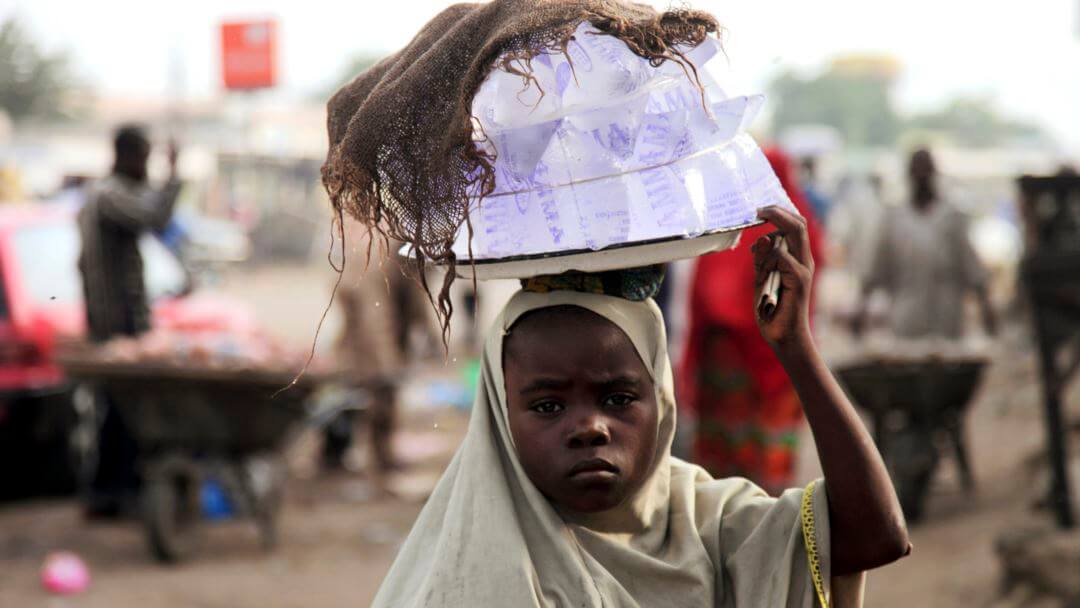A Multiple Indicator Cluster Survey (MICS) 2017 has shown that in Nigeria more than half of the population of children age five to fourteen years are involved in child labour.
The proportion of these children partaking in this trade increased from 47.1 percent in 2011 to 50.8 percent in 2017.
Advertisement
Revealing this to journalists in Enugu State at a two-day training organised by Child Right Information Bureau (CRIB), Federal Ministry of Information and Culture in collaboration with United Nations Children’s Fund (UNICEF), Mrs Maureen Zubie- Okolo, Monitoring and Evaluation Specialist of UNICEF, described the situation as worrisome.
Zubie-Okolo said in comparison with different geographical zones of the country, North West topped the chart with 55.1 percent, followed by South South with 48.7 percent, North East 47.2 percent, South East 46.6 percent and South West 38.0 percent.
Similarly, she said child labour when compared with school enrolment of children from primary to secondary has worsened child education enrolment and completion.
The MICS states “that the primary and secondary school net ratio of attendance of those who entered the first grade of primary and secondary, decreased from 70.1 percent to 60.9 percent and from 54.2 percent to 46.9 percent respectively.
Advertisement
“Primary school completion rate reduced from 85.5 percent to 63 percent while the transition rate of secondary school also reduced from 74 percent to 49 percent. More than a quarter of primary and secondary school age children are out of school, 27 percent and 26 percent respectively.”
The survey was carried out by National Bureau of Statistics (NBS) while UNICEF provided technical support and the aim is to support countries in the collection of internationally comparable data covering a wide range of indicators on the situation of children and women including health, nutrition, Water, Sanitation and Hygiene (WASH), education, protection, HIV and AIDS amongst others.
She said data collection was between 2011 and January 2017 from 33,901 household of 2,239 enumeration area across the 36 States and the Federal Capital Territory.
Earlier in his welcome address, the Assistant Director, CRIB, Mr Olumide Osanyinpeju, who represented the Minister of Information and Culture, Alhaji Lai Mohammed, said, “collecting quality data is necessary, but not sufficient. Data must also be disseminated in a user- friendly way to ensure that they are understood and used. Data also informs policy decisions and enhance advocacy and public awareness on priority development issues.”
He charged journalists to use various medium to increase people’s knowledge on understanding data; Interpreting data and their uses; how data is derived; from numbers to words; deriving stories from data and of course, UNICEF’s role in data generation in Nigeria.



